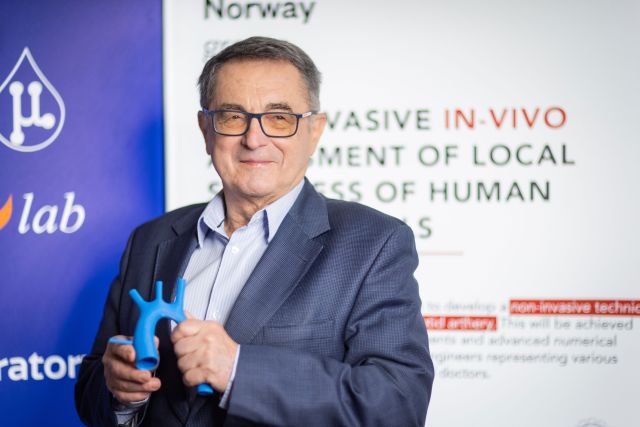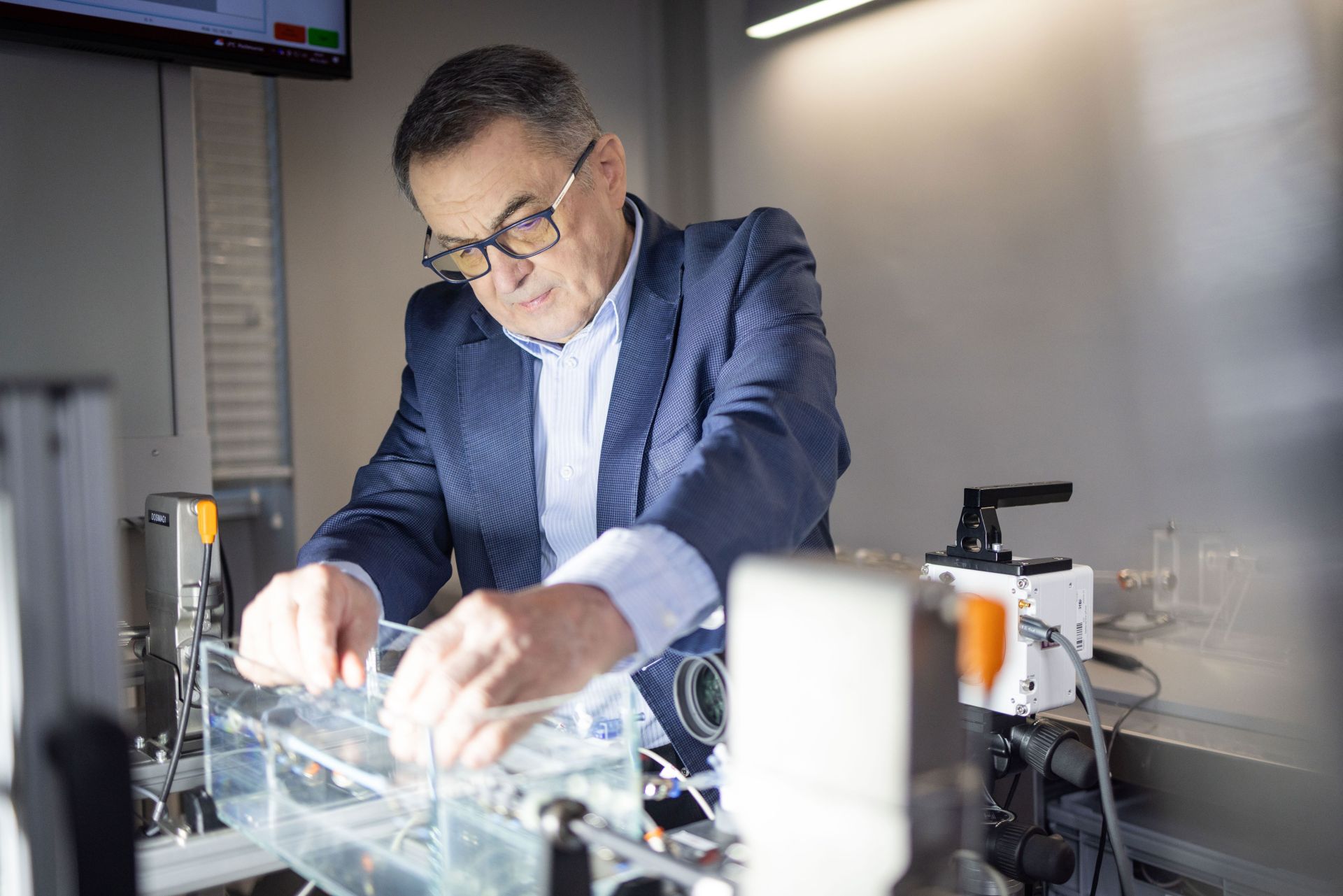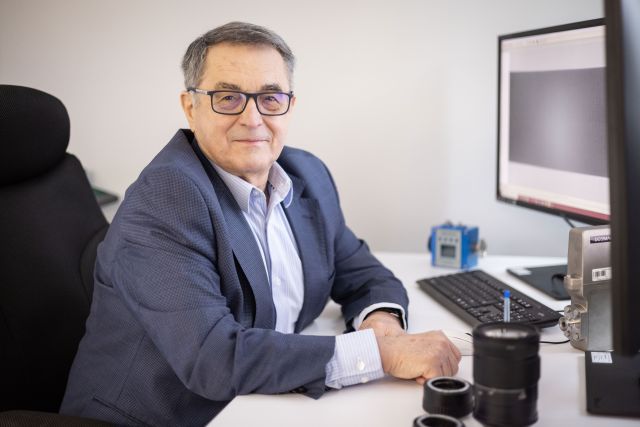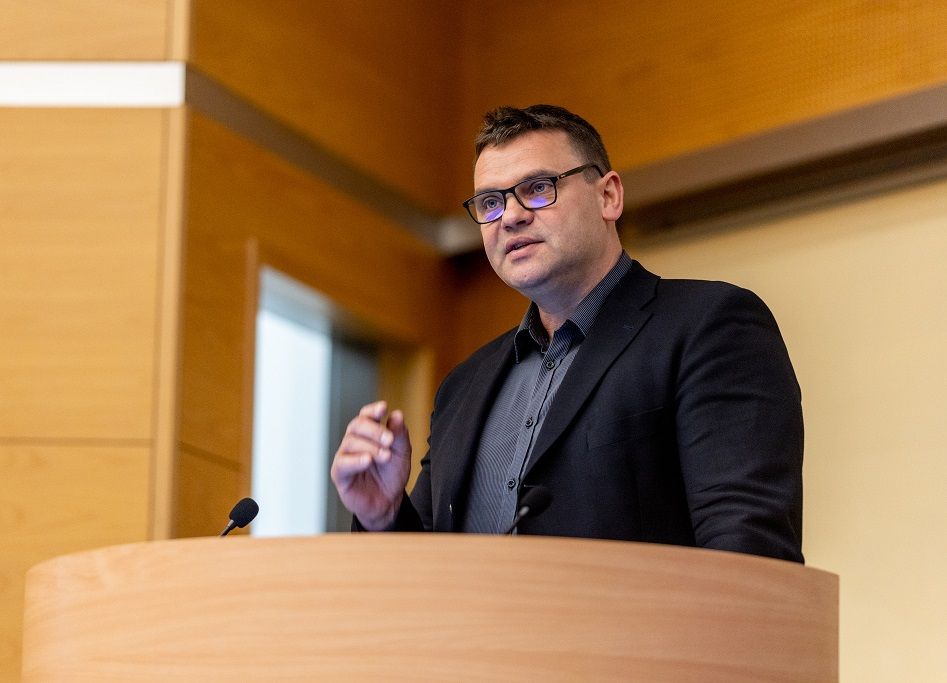Technologies paving the way to revolutionary changes
The World Quantum Day, celebrated on 14 April, is an international celebration featuring researchers from 65+ countries dedicated to spreading awareness about quantum technologies (QT). Scientists predict that within a decade these technologies will significantly impact our daily lives. Medical diagnostics will be expedited and more precise, data security in networks unparalleled and new materials boasting revolutionary properties will be developed.
The global landscape of quantum technologies is experiencing rapid expansion, with Europe aspiring to be the world’s first Quantum Valley. To this end, researchers are supported by, inter alia, the Quantum Flagship and QuantERA, with Poland playing the key role.
Europa of new ideas
photo: Krzysztof Magda
The Quantum Technologies Flagship, initiated by the European Commission, with a budget of over EUR 1 billion, is one of the most important endeavours in the field of research and innovation that aims to put Europe at the forefront of quantum technologies. In February, representatives of the Quantum Technologies Flagship presented a new quantum development agenda 2023, in which they defined their ultimate goal as turning Europe into the world’s first “Quantum Valley” thanks to its scientific and industrial potential and qualified workforce. “Many concepts and ideas in quantum technology were born on our continent,” says Prof. Konrad Banaszek, scientific coordinator of the QuantERA Network.
QuantERA, which works in close cooperation with the Quantum Flagship, is Europe’s largest quantum research-funding programme. QuantERA promotes ambitious, foundational and cutting-edge engineering research projects in quantum technologies (QT), monitors activities and strategies in quantum technologies, and creates responsible research guidelines. So far, the Network has funded over 100 international projects in the field of basic and applied research involving 550 research groups.
The National Science Centre is the Network coordinator. “We are well aware of what’s going on in quantum technologies, we know what projects are underway in Europe at the moment and, most importantly, we can influence the directions of development in the field,” says Sylwia Kostka, programme coordinator from the National Science Centre.
Pushing the boundaries
In the latest QuantERA call, concluded at the end of 2023, the highest-ranked proposals included research into quantum imaging, colour-centre quantum sensors and quantum-dot single-photon sources.
Dr Radek Łapkiewicz from the University of Warsaw studies how quantum effects can be used in imaging. He was awarded funding for his project “Quantum Multi-Modal Microscopy” carried out in tandem with researchers from France, Germany and Switzerland. When asked what changes quantum technologies may bring to imaging in the nearest future, he says that it would be only natural to use quantum instruments to push the boundaries of what can be done in biomedical imaging. “Advanced biomedical imaging is often limited by the amount of light available. For instance, if you want to look at the structures deep inside a tissue, it is often difficult to introduce enough light there in a non-invasive way and it is just as hard to detect the light coming out. Quantum optics scientists specialise in detecting even very weak light pulses, while quantum metrologists know how to plumb each photon for maximum information,” he explains, adding that “the scientific community has already witnessed the first demonstrations of the quantum advantage”.
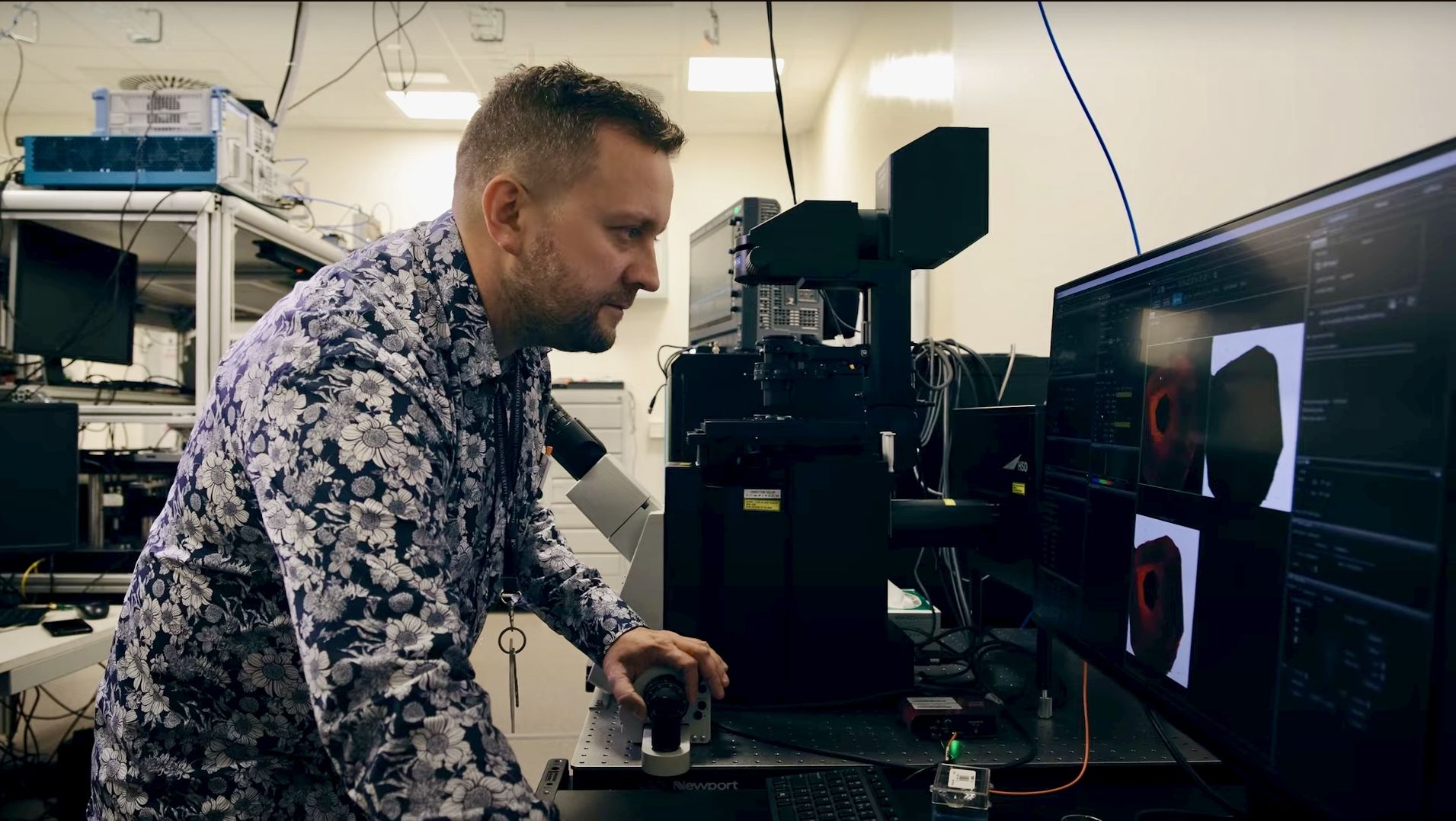 Dr hab. Adam Wojciechowski
Dr hab. Adam Wojciechowski from the Jagiellonian University in Krakow works on a project that can also be used for biomedical purposes. Together with researchers from Germany and Spain, Dr Wojciechowski aims to develop novel quantum sensing protocols tailored for use with nanodiamonds (NDs). “Our objective is to enhance the material properties of nanodiamonds and introduce advanced measurement techniques to obtain detailed information about their surrounding environment. Ultimately, our goal is to embed those nanodiamonds into biological cells and measure signals related to the presence of specific substances delivered to the cells” explains Wojciechowski.
Dr hab. Adam Wojciechowski
Dr hab. Adam Wojciechowski from the Jagiellonian University in Krakow works on a project that can also be used for biomedical purposes. Together with researchers from Germany and Spain, Dr Wojciechowski aims to develop novel quantum sensing protocols tailored for use with nanodiamonds (NDs). “Our objective is to enhance the material properties of nanodiamonds and introduce advanced measurement techniques to obtain detailed information about their surrounding environment. Ultimately, our goal is to embed those nanodiamonds into biological cells and measure signals related to the presence of specific substances delivered to the cells” explains Wojciechowski.
Knowledge and competencies all over Europe
Prof Banaszek emphasises “the abundance of promising research endeavours underway” across our continent, advocating for their “parallel support.” In that regard, QuantERA stands as a direct facilitator, incentivising collaboration among European scientists and fostering partnerships between countries participating in the programme.
At the stage of merit-based evaluation of proposals submitted in the QuantERA calls, emphasis is placed solely on their scientific merit. However, in cases where two or three projects receive equally high ratings, priority is given to the one involving researchers from the countries where the level of research and innovation is lower than the EU average – the so-called “widening countries.” The same approach is used to ensure more balanced participation of women and men in the research teams giving priority to projects involving participation of female researchers.
According to Prof. Katarzyna Roszak from the Institute of Physics, Czech Academy of Sciences, winner of the call in 2023, formation of research consortia by researchers from less prominent research centres, often including young researchers, is possible due to the rules and regulations adopted by the Network. “This team formation improves the quality of research, allowing less conventional research directions to be developed, which can lead to important discoveries,” she says. Researchers from Czechia, Germany, Poland and Italy are involved in research under the leadership of Prof. Roszak.
Dr hab. Adam Wojciechowski hopes that participation in the projects of the Network will improve the significance of researchers from the widening countries. “Many quantum technologies in Poland are developed at the world-class level. QuantERA programmes increase our chance for international recognition and may as such enhance our participation in top European projects which now mostly include large consortia,” he explains.
“Strengthening scientific excellence in the widening countries is crucial for fostering a Europe without borders and gaps. Spreading of excellence across the entire European Research Area should play a major role in evaluating the long-term impact of individual funding programmes,” adds Prof Ticijana Ban from the Institute of Physics in Zagreb. The project “QNet: Transport, metastability, and neuromorphic applications in quantum networks” under her management involves participation of researchers from Croatia, Germany, Spain and Switzerland.
QuantERA brings together 41 research-funding agencies from 31 countries and will continue until 2026. Representatives of the Network are already working with the European Commission on the continuation of the programme.
Anna Korzekwa-Józefowicz

